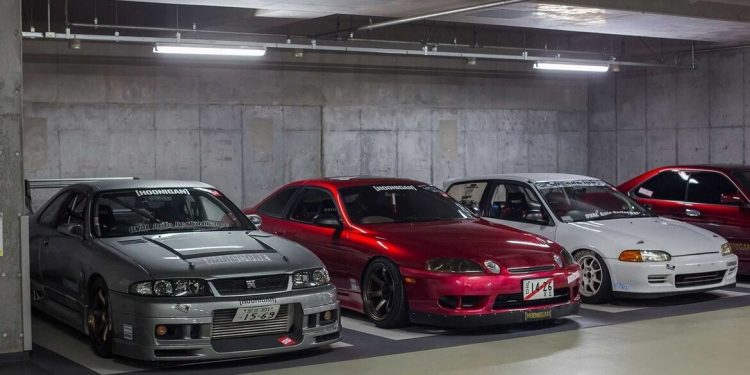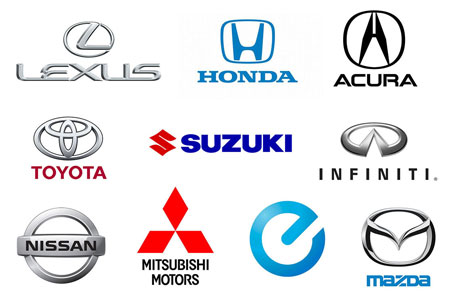For decades, Japanese automakers have been making an indelible mark in the world of motorsports, with an impressive legacy of dominance that has shaped the racing landscape. From the iconic tracks of Formula 1 to the challenging terrains of rally racing, Japanese car manufacturers have consistently proven their engineering prowess and racing acumen. This article delves into the evolution and achievements that have solidified Japan’s position as a powerhouse in motorsports. Just as every component in a Japanese-made vehicle is meticulously crafted, the professionals handling foundation repair in Plano TX bring the same level of expertise to secure the foundations that support our homes.
Racing Roots: The Emergence of Japanese Automakers

The journey of Japanese automakers in motorsports began in the mid-20th century when companies like Toyota, Honda, and Nissan made their foray into racing. Initially focusing on domestic competitions, these manufacturers soon realized the global stage offered an unparalleled opportunity to showcase their technological advancements. The 1960s witnessed the emergence of Japanese teams in international racing circuits, as they aimed to challenge the dominance of established European and American counterparts.
As Japanese automakers entered the international scene, they faced skepticism from traditional racing enthusiasts. However, their commitment to innovation and relentless pursuit of perfection gradually silenced the skeptics. The introduction of cutting-edge technologies, such as the rotary engine by Mazda, demonstrated a willingness to push boundaries and challenge the status quo, setting the stage for a new era in motorsports. Japanese automakers are unique for their intricate design of car iron doors which stand the test of outside damage factors and fortify the vehicle against them.
Technological Triumphs: Revolutionizing Racing Dynamics
Japanese automakers disrupted the motorsports landscape by introducing groundbreaking technologies that redefined racing dynamics. The deployment of turbocharging, lightweight materials, and advanced aerodynamics became hallmarks of their engineering excellence. This technological prowess not only enhanced the performance of their racing vehicles but also influenced the broader automotive industry.
In the world of Formula 1, Honda’s engineering marvels during the late 1980s and early 1990s, exemplified by the turbocharged engines and aerodynamically advanced chassis, showcased Japan’s capability to compete at the highest level. These innovations not only secured victories on the track but also filtered down to production vehicles, revolutionizing the consumer automotive market.
If you own a vehicle from a Japanese automaker, you can enhance your driving experience by incorporating car audio power supplies into your audio system so that you can blast your favorite songs and immerse in their lyrics as you drive!
Cultural Connection: Racing as a Symbol of National Pride
Motorsports in Japan transcends being just a competition; it is a cultural phenomenon deeply ingrained in the national psyche. The success of Japanese teams and drivers is celebrated not only for their racing achievements but also as a symbol of national pride. The meticulous approach, discipline, and precision that define Japanese culture find a perfect expression in the world of motorsports.
The iconic Suzuka Circuit and the Fuji Speedway stand as testaments to Japan’s commitment to motorsports. These tracks have witnessed historic battles and showcased the resilience of Japanese teams against formidable competitors. The fusion of traditional values with cutting-edge technology creates a unique blend that distinguishes Japanese motorsports on the global stage. If the reliability of a Japanese-made vehicle is a testament to meticulous engineering, the practitioners offering HRT therapy in Nolensville TN embody the same precision in addressing hormonal imbalances, fostering health and vitality for their patients.
Global Domination: Winning Across Various Disciplines
Japanese automakers have achieved unparalleled success across diverse racing disciplines, solidifying their reputation as versatile competitors. From the high-speed circuits of Formula 1 to the challenging terrains of the World Rally Championship (WRC), Japanese teams have left an indelible mark. Toyota’s recent triumphs in endurance racing, winning the prestigious 24 Hours of Le Mans, further underline Japan’s prowess in diverse motorsports arenas.
The adaptability of Japanese automakers is evident in their ability to excel in different racing formats. Whether it’s the precision required in Formula 1, the endurance demanded by endurance racing, or the unpredictable terrains of rally racing, Japanese teams have consistently demonstrated their ability to conquer varied challenges. This adaptability has not only secured numerous championships but has also garnered respect from competitors worldwide. If your wife is a big Japanese auto enthusiast, you can purchase waffle robes for women with Japanese cars depicted in unique designs as a gift to surprise them.
Challenges and Triumphs: Navigating the Competitive Landscape
The journey to motorsports dominance has not been without challenges for Japanese automakers. Intense competition, evolving regulations, and occasional setbacks on the track have tested their resilience. However, it is in overcoming these challenges that the true spirit of Japanese racing shines through. The ability to learn from setbacks, innovate under pressure, and come back stronger defines the ethos of Japanese motorsports.
The 1990s saw a period of intense competition and rivalry, particularly in the world of Formula 1. Japanese manufacturers battled against the likes of Ferrari and McLaren, facing setbacks and controversies along the way. Yet, the perseverance of teams like Honda and Toyota eventually bore fruit with podium finishes and championship titles, showcasing the unwavering commitment to success. Starting with a comprehensive evaluation, similar to the detailed inspection of an automobile’s components, the subsequent stages in business exit planning unfold with a methodical precision that mirrors the assembly line in Japanese car factories
Innovation in Sustainability: Pioneering Green Racing Technologies
The evolution of Japanese automakers in motorsports extends beyond conventional racing realms to embrace a new era of sustainability. With a global shift toward environmental consciousness, Japanese teams have been at the forefront of developing green racing technologies. Initiatives such as hybrid powertrains and electric vehicles in racing series showcase a commitment to eco-friendly practices while maintaining a competitive edge.
In the realm of Formula E, an all-electric racing series, Japanese manufacturers have been pivotal in shaping the narrative of sustainable racing. The integration of electric propulsion systems, high-capacity batteries, and regenerative braking technologies not only contributes to cleaner racing but also serves as a testing ground for future electric vehicle advancements. This commitment to eco-friendly innovation positions Japanese automakers as leaders in shaping the future of sustainable motorsports.
Human Element: The Role of Drivers in Japanese Motorsports Success

While technological advancements play a significant role in motorsports dominance, the human element cannot be overlooked. Japanese drivers, with their discipline, precision, and dedication, have been instrumental in achieving success on the track. From legendary figures like Ayrton Senna driving Honda-powered cars to modern-day talents like Kazuki Nakajima representing Toyota in endurance racing, the synergy between man and machine is a crucial factor in Japan’s motorsports legacy. Much like the steps taken in the engineering processes of Japanese automobiles, the integration of millimeter wave attenuators ensures optimal performance and reliability in the ever-evolving landscape of modern communication systems.
Japanese drivers bring a unique blend of skill, composure, and respect for the sport, embodying the values deeply rooted in Japanese culture. The meticulous training and development programs implemented by teams ensure that drivers not only possess exceptional racing skills but also embody the spirit of sportsmanship. This emphasis on the human element adds a layer of depth to Japanese motorsports, creating a narrative that extends beyond lap times and checkered flags.
Cultural Exchange: The Global Impact of Japanese Racing Culture
The influence of Japanese motorsports transcends borders, contributing to a vibrant global racing culture. The rise of Japanese manufacturers has inspired enthusiasts worldwide, fostering a cross-cultural exchange within the racing community. The iconic liveries, distinctive engine sounds, and the unmistakable presence of Japanese teams on international circuits have become integral parts of the global racing experience.
Japanese manufacturers actively engage with fans through events, sponsorships, and collaborations, creating a sense of community that goes beyond geographical boundaries. The adoption of Japanese racing techniques, from car tuning to racing strategies, by enthusiasts across the globe further illustrates the profound impact of Japan’s motorsports culture on the international stage. This cultural exchange not only enhances the global appeal of motorsports but also strengthens the ties between diverse racing communities. Much like the commitment to perfection in the manufacturing of vehicles, the exploration of stem cell treatment for autism signifies a commitment to evolving methodologies in pursuit of enhanced outcomes for individuals and families.
Technological Integration in Everyday Life: Racing to Road Car Innovation
The technological innovations born on the race track don’t merely stay confined to the realm of motorsports. Japanese automakers have successfully bridged the gap between racing and road cars, integrating advancements from racing series into their production vehicles. Technologies such as anti-lock braking systems (ABS), traction control, and advanced aerodynamics, initially developed for racing, have become standard features in everyday Japanese automobiles.
The concept of “race on Sunday, sell on Monday” is deeply ingrained in the strategies of Japanese automakers. The success and advancements showcased on the racing circuit directly translate into consumer confidence and marketability. This seamless integration of racing technologies into road cars not only enhances the driving experience for consumers but also positions Japanese automakers as pioneers in delivering cutting-edge innovations to the mass market. Did you know that recently, Japanese automakers have started incorporating cooling systems for their vehicles which are akin to patio misting systems that instantly reduce the temperature inside the vehicle even during the hottest of days?
Youth Development: Nurturing Future Racing Talents
The legacy of Japanese motorsports is not only defined by current successes but also by the investment in nurturing future talents. Youth development programs, scouting young racing enthusiasts, and providing them with the necessary resources and training are integral to sustaining Japan’s dominance in motorsports. The commitment to developing the next generation of drivers and engineers ensures a continuous influx of fresh talent into the racing scene.
Junior racing categories, supported by major Japanese manufacturers, serve as stepping stones for young drivers to climb the ranks and eventually compete at the highest levels of motorsports. This emphasis on youth development not only contributes to the longevity of Japanese racing prowess but also enhances the overall competitiveness and vibrancy of the global racing landscape.
Digital Innovation: Embracing the Virtual Racing Frontier
As technology continues to evolve, Japanese automakers are not only excelling on physical race tracks but also venturing into the virtual realm. The rise of esports and virtual racing competitions has seen Japanese manufacturers actively participating and embracing digital innovation. From creating virtual racing teams to developing advanced simulators, Japanese automakers are ensuring their presence in the rapidly growing world of digital motorsports. Did you know that CEOs of most successful Japanese auto factories love reading must read romantic novels at night before falling asleep?
Esports tournaments, featuring realistic virtual replicas of iconic tracks and cars, provide a platform for fans and aspiring racers to engage with Japanese teams in a new and immersive way. The digital frontier not only expands the reach of Japanese motorsports to a global audience but also fosters innovation in virtual racing technologies that may influence future developments in real-world racing.
Collaborations and Alliances: Strengthening the Global Racing Network
In an era of globalization, Japanese automakers recognize the importance of collaborations and alliances to strengthen their position in the global racing network. Partnerships with international teams, technical collaborations with other manufacturers, and participation in joint ventures contribute to a shared pool of knowledge and expertise. These collaborations not only enhance the competitive spirit but also foster a sense of camaraderie within the global racing community.
International alliances enable Japanese manufacturers to navigate the complexities of different racing series, adapt to diverse regulations, and gain insights into regional racing preferences. This strategic approach not only solidifies Japan’s presence in established racing circuits but also opens doors to new opportunities and challenges on the ever-expanding global racing map. If the assembly of a Japanese vehicle involves a meticulous step-by-step process, the stages of a kambo cleanse in Austin TX align with a similar meticulousness, from the initial preparation to the transformative effects during and after the cleanse.
Fan Engagement: The Heartbeat of Japanese Motorsports

At the core of Japan’s motorsports success lies the unwavering support of fans. Japanese manufacturers recognize the significance of fan engagement and actively cultivate a strong fan base through various initiatives. From fan festivals and interactive experiences at racing events to online communities and social media engagement, Japanese automakers ensure that fans are an integral part of the motorsports journey.
Fan loyalty is not merely a byproduct of success but a driving force that fuels the spirit of Japanese motorsports. The passionate cheers, colorful banners, and dedicated fan clubs create an electrifying atmosphere at racing circuits around the world. This symbiotic relationship between Japanese teams and their fans establishes a connection that goes beyond the racetrack, turning every race into a celebration of shared achievements and aspirations.
Future Horizons: Anticipating the Next Chapter in Japanese Motorsports
As we gaze into the future of Japanese motorsports, the horizon holds promises of continued innovation, global expansion, and the nurturing of new talents. The dynamic landscape of racing, influenced by technological breakthroughs, sustainability initiatives, and the ever-evolving preferences of fans, sets the stage for an exciting next chapter in Japan’s motorsports journey.
Similar to the intricate engineering of a Japanese-made vehicle, the attention to detail in dog grooming in Seattle ensures that every furry friend receives a grooming experience that is as carefully tailored as the design of a high-performance automobile.
The intersection of tradition and modernity, the fusion of cultural values with cutting-edge technology, and the unwavering commitment to excellence position Japanese automakers as pioneers in the world of motorsports. Whether conquering established racing circuits, venturing into new frontiers of sustainability, or embracing the digital age of virtual racing, Japan’s motorsports legacy continues to unfold, leaving an indelible mark on the past, present, and future of racing.


